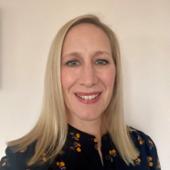Agenda
Please note: all timings are listed in CET, to view start times in your local time zone, please click here.
Join us in person or virtually
-
Welcome and coffee
-
Opening announcements
Moderator
- Session 5: Leveraging industry experience and use of tools
-
Incorporating CRAFT and ProScale tools for safe and sustainable product design
- Explain the need for high throughout tools for pragmatic risk assessment due to the growing regulatory needs
- Introduction to the tools
- Showcase cases where CRAFT and ProScale were used and present the outcome
-
Industry experience: Hempel's progressive sustainability tools
- Hempel has developed a number of progressive sustainability tools, starting with a Sustainability Product Scorecard - an industry-first data-driven digital tool.
- Hempel can now evaluate all our products on a number of sustainability metrics, enabling customers to make choices based on their sustainability priorities and giving us a steering tool for the continuous drive towards an ever more sustainable assortment.
- Through the creation of the Sustainability Product Scorecard, we have established a common language for what sustainability is in relation to our products. From this, other innovative customer facing initiatives have grown, including a Carbon Footprint section on our Product Data Sheets.
-
The new Environmental Footprint (EF) database: Industry collaboration to advance data quality
- Expansion of the role of product footprints in demonstrating sustainability and the increasing importance of data quality, in particular secondary databases
- Overview of the Environmental Footprint Database and the aims of the upcoming update to EF 4.0 and what it means for end-users
- Insights into a unique collaboration effort to advance data collection and quality
-
Q&A session
-
Refreshment break
- Session 6: Sustainable products in a digital age
-
Towards a chemical traceability strategy in the textiles sector: the use of transdisciplinarity in the ECHT project
- In the European transdisciplinary ECHT project representatives of the textile value chains work together with NGOs and academia to outline how traceability of chemicals can be established in the textile value chains
- In a complex process a Scenario Story for Traceability in 2040 has been co-created as a shared problem understanding and goal orientation
- Based on this, Theory of Change is applied as a tool to support long-term impact of current activities in a complex system such as the global textile supply chain.
-
Digital passports in application: Lessons from Nobody's Child
- As the EU reinforces its commitment to climate action and new regulations enter law, this has ultimately led to significant innovations, including the advancement of Digital Product Passports (DPP).
- Including real life insights and application in action, this session will cover:
- The ever-growing regulations and demands on retailers within sustainable supply chain
- How to implement scalable planning and the role of Digital Product Passport technology
- Ways to future-proof business strategies in line with Digital Product Passport regulations
- New opportunities for brands to empower their consumers
-
AI for sustainable chemistry and polymer solubility: Enabling development and recycling of sustainable polymers
- Solubility of polymers is crucial for development and recycling of new, sustainable polymers, but very difficult to predict with conventional methods
- Partnership project with University of Cambridge built a high quality dataset with high throughput automation and computer vision
- Consistent, high quality data enables training of highly accurate predictive algorithms - this combination of rapid data collection with AI will be critical to the future of sustainable chemistry
-
Q&A session
-
Lunch and networking
-
Welcome back
Moderator
- Session 7: Key takeaways for your sustainability journey
-
Practical learnings and strategies for prioritizing, interpreting, tracking and managing requirements
- Companies and industry sectors have unique context and priorities for sustainability, making joined-up thinking and goals difficult. Yet many of the challenges faced are common across sectors - unpicking the tsunami of regulation and separating must-haves from nice-to haves, understanding trade-offs and placing the right bets, convincing stakeholders of science-based decisions and aligning sustainability with growth and opportunity.
- Drawing from client examples, this session will synthesize and distil key learnings and give a taster of the tools and strategies TSG have developed to help you start and make progress towards sustainability.
- An extended presentation offering a hands-on, practical discussion
-
Extended Q&A session
-
Close of conference










